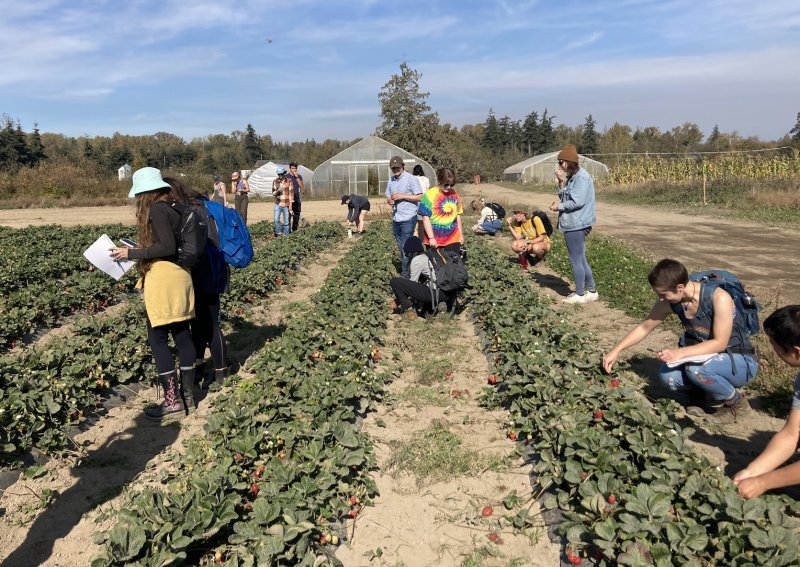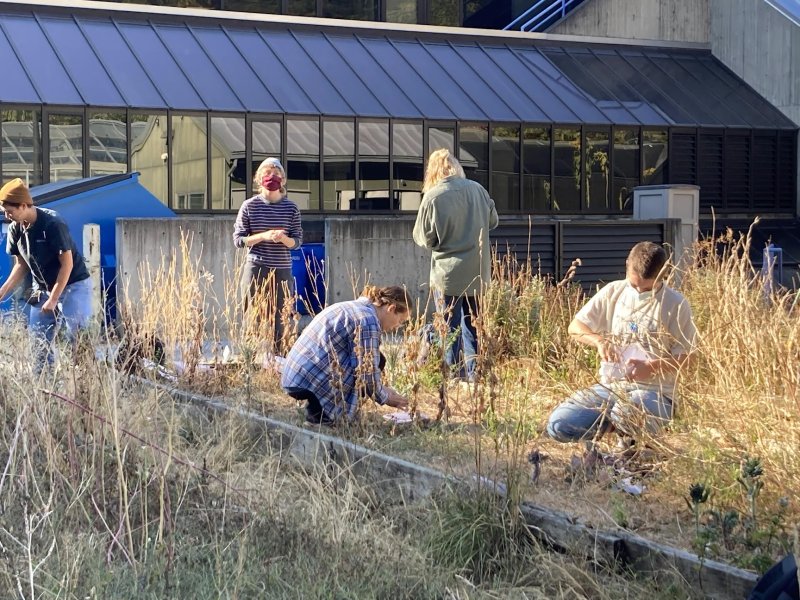New minor prepares students for careers surrounding food security & food policy
Does your future career somehow involve food systems, food or farm policy, or simply food? The new Food Security and Policy Minor from the Department of Urban and Environmental Planning and Policy is a project-based, interdisciplinary study of food security and community resilience that will help students query the complexities and challenges of our food system.
By simply eating, we all participate in a cultural-political-environmental system that ends with us, the consumers. Our agricultural web includes everything we need to grow, process, and distribute food, but there are severe inequities in our society regarding who has food. For many, getting better food is secondary to getting enough food. “For many households, food security is now defined not by a pantry full of raw ingredients but by the availability of nearby prepared food, whether that food is handed to them through a drive-through window, in a take-out order, or a packaged meal purchased at a grocery store,” says Professor Gigi Berardi, who teaches agroecology and helped design the Food Security and Policy Minor. Food is about more than taste and nutrition; it’s also about who can afford it; who has access to it; and who has the time, energy, and facilities to prepare it.
The Food Security and Policy Minor addresses the question, “What does a just resilient food and agriculture system look like on different scales,” and develops frameworks for querying and assessing food injustices. “We need to dramatically, absolutely reduce food security vulnerabilities that are tied to race, income, age, and gender,” says Berardi. And, on the importance of dealing with the complex issue of food insecurity from multiple angles, she says, “Food security is never just vulnerabilities around food, but also mental and physical health, housing, and transportation and education access.”
The coursework in this minor considers community vulnerabilities, racialized food distribution structures, as well as gender, class, and caste in current and future planning. This work involves identifying strategies informed by community, state, and national policies and planning’s best management principles. Food Security and Policy Minor students will select 26-37 credits from a varied list of courses from eight different departments.
Many careers revolve around food and farm policy. Some work with holistic nutrition and food planning, while others work in government and nonprofit organizations to help with outreach around food programs and connecting families to food. A few sample job titles include policy research analyst, food and agriculture analyst, food program manager, sustainable agriculture and farming manager, or political lobbyist. Students might also use these skills to write curricula, participate in garden-to-table programs, grow food, or develop permaculture designs and practices.
“Food insecurity is more than the absence of a grocery store in an urban neighborhood that creates a food desert,” says Berardi. “We need to work to end systematic marginalization of many people in our country and work for effective government intervention.”
The Food Security and Policy Minor is open to all majors. The 2023-24 course catalog contains more information about the minor, or contact a faculty advisor.

